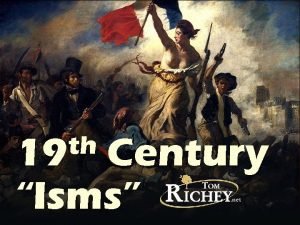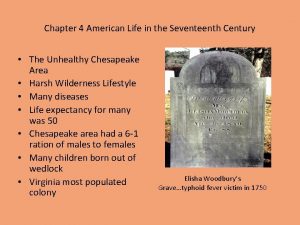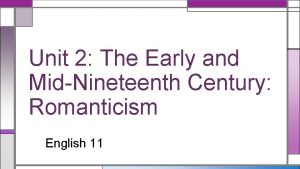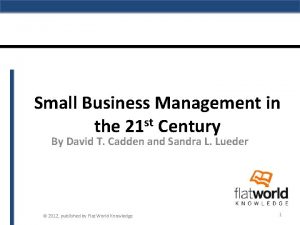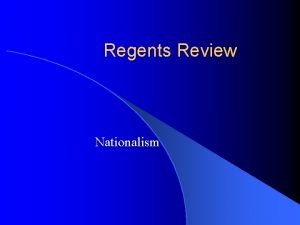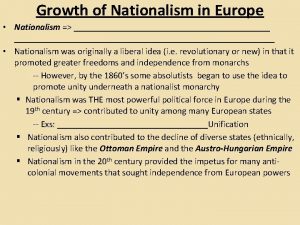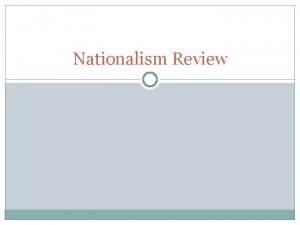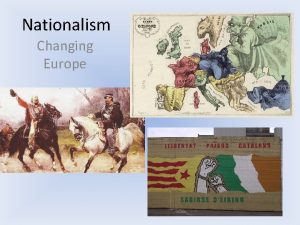th 19 Century European Nationalism What is Nationalism










- Slides: 10

th 19 Century European Nationalism

What is Nationalism? • Nationalism- a feeling of intense loyalty to others who share a language and culture. • Should also share a government • Nationalism was a powerful force that could: • Create one nation from separate countries (ex. Italy and Germany) • Break one nation up into many countries (ex. Austria-Hungary, and Turkey)

2 Examples from 19 th Century Europe ITALY GERMANY

Background to European Nationalism After the Napoleonic wars The Congress of Vienna (1815) ◦Goals: ◦Restore the Balance of Power in Europe ◦Prevent Imperialism in Europe ◦Restore Monarchies


How does the Congress of Vienna lead to Nationalism? European powers wanted to contain France ◦ Part of what becomes Germany and part of what becomes Italy start to unite over shared culture, history, language, etc. ◦ Co. V was relatively successful in keeping Europe stable until 1914 ◦ Europe also sees a rise in Nationalist feelings during this period ◦ Greek Independence (1820) ◦ Revolutions of 1830 and 1848

Italian Unification For most of its history Italy was city states or regional kingdoms By 1850’s Canillo di Cavour had unified most of Northern Italy Giuseppe Garibaldi (left) helped to bring southern territories into the Kingdom of Italy By 1870 became Kingdom of Italy


German Unification Modern Germany did not exist until 1871 ◦ Was part of the Holy Roman Empire ◦ Prussia was the most powerful principality of the HRE ◦ Otto Von Bismark as Prime Minister Prussia was able to: ◦ Modernize and expand army ◦ Win wars against rivals which allowed the Prussian king to name himself emperor of the Second German Empire (Second Reich) ◦ Embraced all German speaking people outside Austria and Switzerland

What did Italy and Germany have in common? Made it clear that with a strong political, diplomatic, and military leadership NATIONALISM could mobilize people ◦ How? ◦ ◦ Adopt national flags National Anthems National Holidays Bureaucracies that kept track of national statistics (births, deaths, etc. ) ◦ Est. schools that instilled patriotic values
 Chinese club music
Chinese club music New world of work badges
New world of work badges Itslearning fraser
Itslearning fraser Conservatism buzzwords
Conservatism buzzwords 21st century breakdown
21st century breakdown Pretest art in the 20th century and today
Pretest art in the 20th century and today Century heritage fcu
Century heritage fcu Chapter 4 american life in the seventeenth century
Chapter 4 american life in the seventeenth century Pretest: the early and mid-nineteenth century: romanticism
Pretest: the early and mid-nineteenth century: romanticism Small business management in the 21st century
Small business management in the 21st century Trial of the century
Trial of the century



